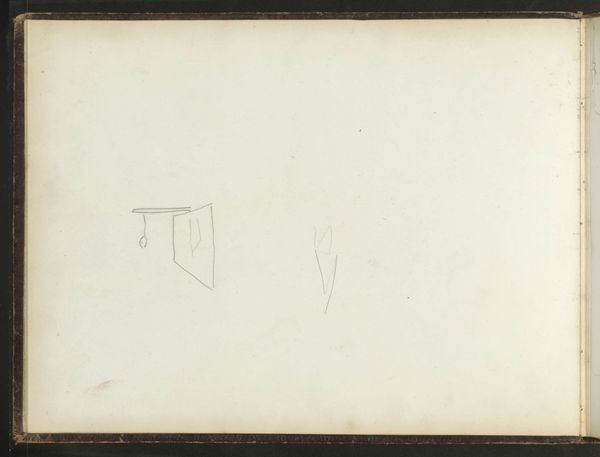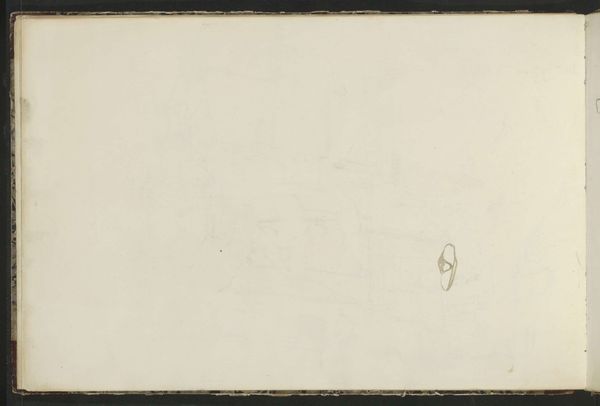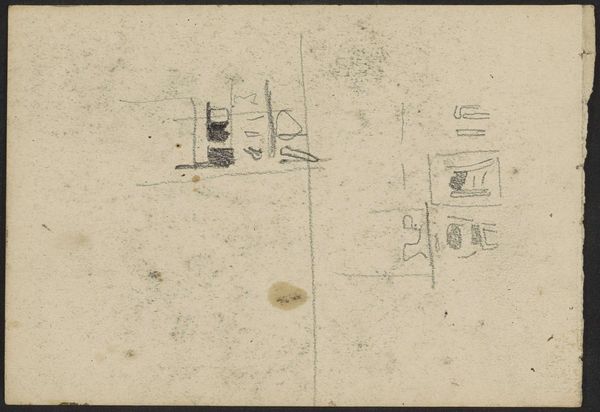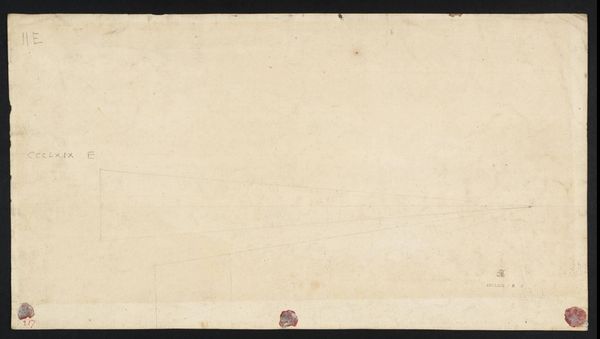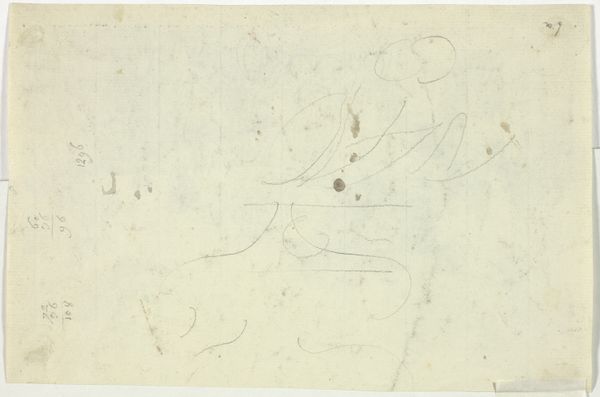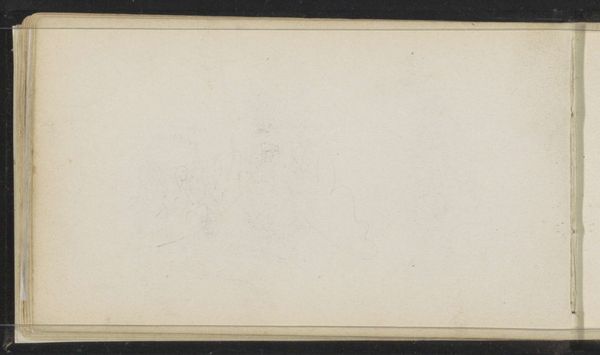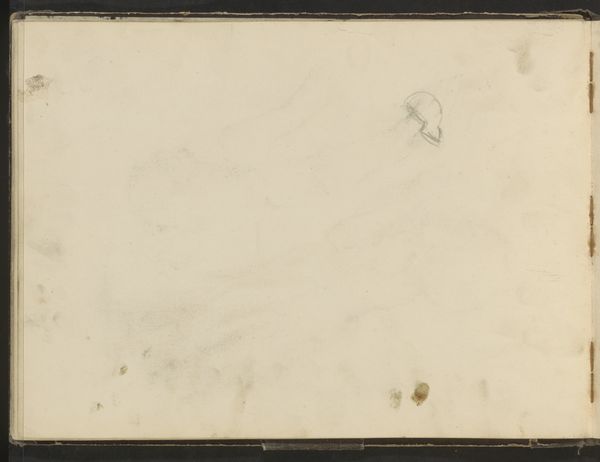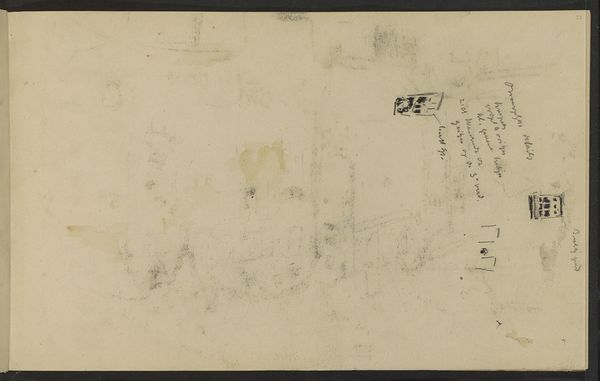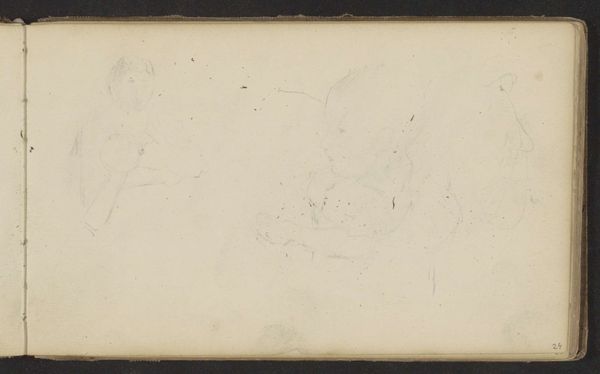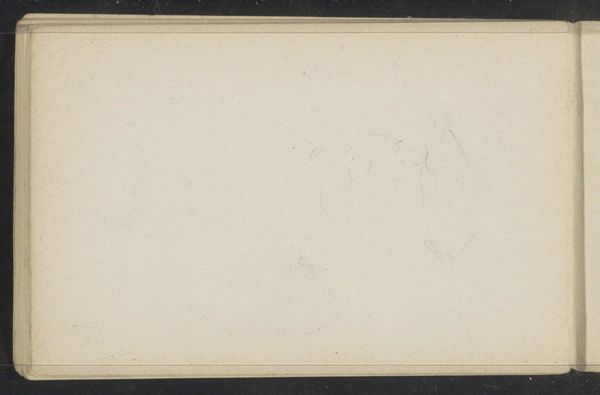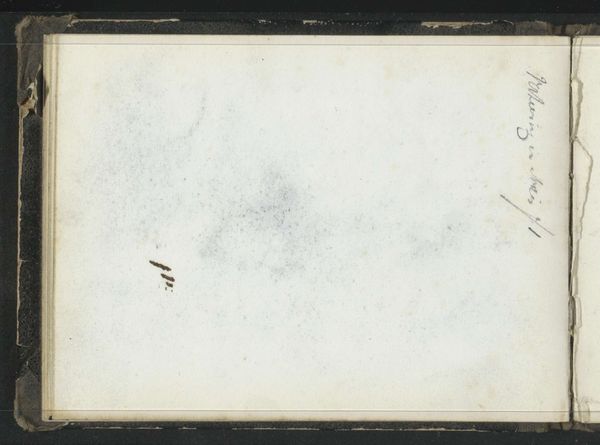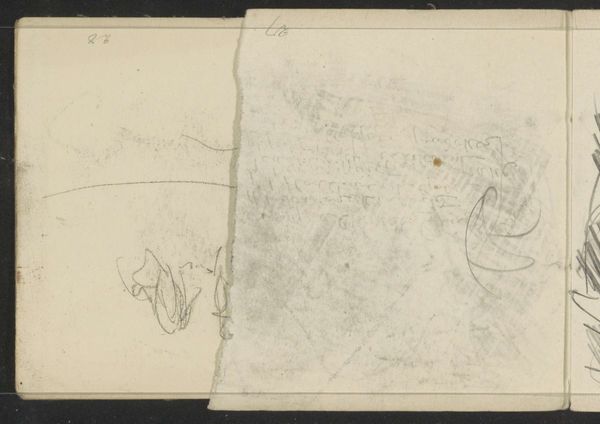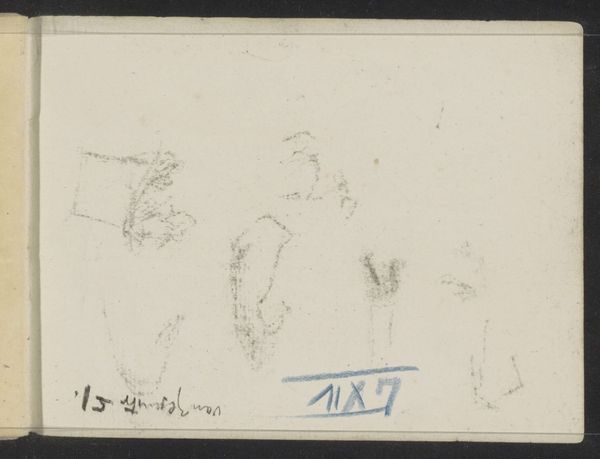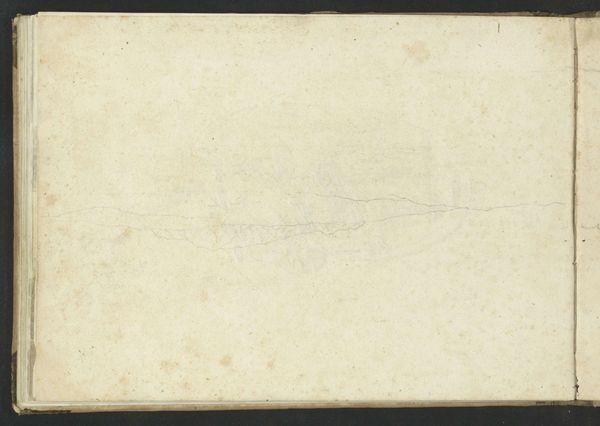
Copyright: Rijks Museum: Open Domain
Editor: This is "Studies," a pencil drawing on paper by Johanna van de Kamer, created sometime between 1883 and 1922. The image strikes me as almost ephemeral – a fleeting thought captured in simple lines. What can you tell me about this intriguing sketch? Curator: Indeed. Van de Kamer's sketchbooks are fascinating portals into an artistic mind grappling with form and space, operating under social expectations of her time. How do you think societal access or bias affected a female artist at that time? Editor: I'd imagine societal constraints regarding gender, class, and cultural affiliation surely impacted her journey. Returning to the work itself, these aren’t polished compositions, are they? More like private, raw experimentations? Curator: Precisely. And that's where the socio-political context becomes interesting. The late 19th and early 20th centuries saw the rise of art education, but access wasn't equal. Sketchbooks became vital spaces for artists like van de Kamer to circumvent institutional gatekeeping, explore and cultivate personal, and occasionally revolutionary, expression, for private reflection as well as artistic strategy. Does the knowledge that these images would probably only have been intended for her own consumption change your viewing of them? Editor: It definitely reframes it. It highlights a different kind of freedom, even defiance. A place to develop her skills while avoiding social judgement. It makes these lines, this work, all the more valuable and special. Curator: I agree. It provides an important nuance on artistic development. Thanks! Editor: Thank you! This has given me much to consider.
Comments
No comments
Be the first to comment and join the conversation on the ultimate creative platform.
